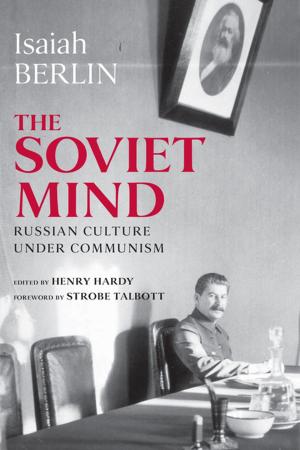The Terrorist Argument
Modern Advocacy and Propaganda
Nonfiction, Social & Cultural Studies, Political Science, Politics| Author: | Christopher C. Harmon, Randall G. Bowdish | ISBN: | 9780815732198 |
| Publisher: | Brookings Institution Press | Publication: | January 9, 2018 |
| Imprint: | Brookings Institution Press | Language: | English |
| Author: | Christopher C. Harmon, Randall G. Bowdish |
| ISBN: | 9780815732198 |
| Publisher: | Brookings Institution Press |
| Publication: | January 9, 2018 |
| Imprint: | Brookings Institution Press |
| Language: | English |
From chants and pamphlets to the Internet, terrorist propaganda can be deadly effective
Propaganda used by terrorists and armed groups might not always be the most sophisticated or nuanced form of rhetoric, but with the right mix of emotion and logic it can be extremely effective in motivating supporters and frightening opponents. This book examines how terrorist groups in recent history have used propaganda, and how they had adapted to new communications technologies while retaining useful techniques from the past.
Harmon and Bowdish trace how armed groups and terrorists around the globe have honed their messages for maximum impact, both on the communities they hope to persuade to support them and on the official state organs they hope to overthrow. Sometimes both the messages and the techniques are crude; others are highly refined, carefully crafted appeals to intellect or emotion, embracing the latest forms of communications technology. Whatever the ideas or methodology, all are intended to use the power of ideas, along with force, to project an image and to communicate—not merely intimidate.
The Terrorist Argument uses nine case studies of how armed groups have used communications techniques with varying degrees of success: radio, newspapers, song, television, books, e-magazines, advertising, the Internet, and social media. It is fascinating reading for anyone interested in civil conflict, terrorism, communications theory and practice, or world affairs in general.
From chants and pamphlets to the Internet, terrorist propaganda can be deadly effective
Propaganda used by terrorists and armed groups might not always be the most sophisticated or nuanced form of rhetoric, but with the right mix of emotion and logic it can be extremely effective in motivating supporters and frightening opponents. This book examines how terrorist groups in recent history have used propaganda, and how they had adapted to new communications technologies while retaining useful techniques from the past.
Harmon and Bowdish trace how armed groups and terrorists around the globe have honed their messages for maximum impact, both on the communities they hope to persuade to support them and on the official state organs they hope to overthrow. Sometimes both the messages and the techniques are crude; others are highly refined, carefully crafted appeals to intellect or emotion, embracing the latest forms of communications technology. Whatever the ideas or methodology, all are intended to use the power of ideas, along with force, to project an image and to communicate—not merely intimidate.
The Terrorist Argument uses nine case studies of how armed groups have used communications techniques with varying degrees of success: radio, newspapers, song, television, books, e-magazines, advertising, the Internet, and social media. It is fascinating reading for anyone interested in civil conflict, terrorism, communications theory and practice, or world affairs in general.















